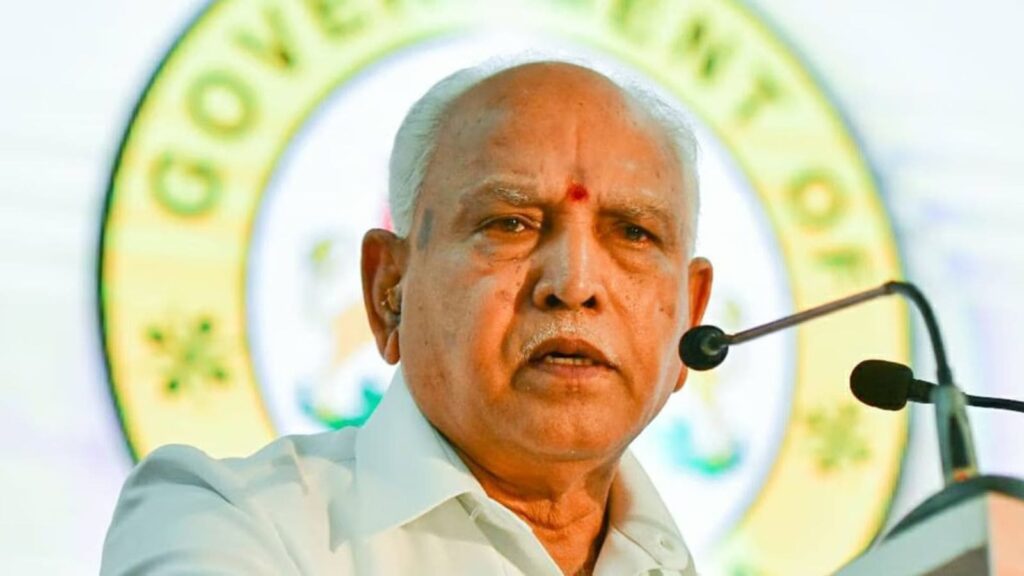The Karnataka High Court Thursday dismissed former Karnataka chief minister B S Yediyurappa’s challenge to the Pocso case lodged against him. The order was passed by a single-judge bench consisting of Justice M I Arun.
Story continues below this ad
Justice Arun refused to quash the case or interfere with the cognisance taken by the trial court, while stating that the trial court could exempt Yediyurappa from personal appearance via his exemption application, unless his presence was necessary. It stated that further applications by the petitioner against the case could be made before the trial court.
Yediyurappa’s petition sought the quashing of the FIR against him, as well as an order of cognisance and summons issued by the trial court. The Protection of Children from Sexual Offences (Pocso) Act case against Yediyurappa was registered on March 14 last year, after a woman accused Yediyurappa of inappropriately touching her minor daughter. She stated that the incident had occurred when they went to meet him in February 2024, seeking help in another incident of sexual assault.
Story continues below this ad
When cognisance was originally taken in the Pocso case, Yediyurappa had successfully challenged it before the high court bench of Justice M Nagaprasanna. Justice Nagaprasanna had, in his order dated February 7, stated that this cognisance had not been done with proper reasoning. He had also noted that this did not affect the actual registration of the crime and the investigation.
The subsequent fresh cognisance after Justice Nagaprasanna’s order was again challenged by Yediyurappa in the present case and heard by Justice Pradeep Singh Yerur, who had granted an interim stay on the cognisance. The matter had then come before Justice Arun, who delivered Thursday’s order.
In arguments made in previous hearings before the high court, Yediyurappa’s counsel Senior Advocate C V Nagesh had argued that multiple habitual complaints had been made by the deceased complainant (victim’s mother) in various accusations against senior police officers and bureaucrats. He had also questioned why the matter had not been immediately raised with the Commissioner of Police, whom the complainant had met with shortly after. On the other hand, Special Public Prosecutor (SPP) Ravivarma Kumar stated that these arguments had already been raised in the earlier challenge to cognisance, where the order had left the criminal proceedings intact.
In subsequent proceedings, the SPP had argued that the second cognisance order was a reasoned one, while Nagesh had contended that it had not properly examined evidence afresh, such as the alleged audio recordings.


